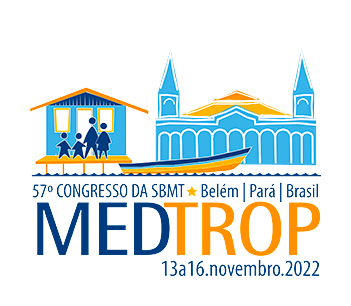Dados do Trabalho
Título
Validation of a novel molecular assay to the diagnostic of COVID-19 based on real time PCR with high resolution melting
Introdução
The availability of the complete SARS-CoV-2 genome during the initial phase of the pandemic facilitated the development of specific primers and standardized laboratory protocols for COVID-19 molecular diagnostic. Using different approaches, but all based on TaqMan assays, a variety of molecular diagnostic kits were produced and validated. Despite the fast development and deployment of these molecular diagnostic kits, production could not keep up with the global demand for diagnostic kits. This decrease in molecular diagnostic kit availability resulted in increased kit prices, making them cost prohibitive for developing countries. Therefore, the development of low-cost alternative diagnostic technologies would be beneficial for current and future medical needs. An alternative method offering a highly specific manner of detecting and genotyping pathogens within clinical specimens is based on the melting temperature differences of PCR products. This method is based on the melting temperature differences between purine and pyrimidine bases.
Objetivo(s)
Develop and validate a real-time RT-PCR assay with High Resolution Melting, for different regions of the SARS-CoV-2 genome (RdRp, E and N) and a human internal control (RNAse P), which is more economical and less dependent on imported inputs, having analytical and clinical performance compatible with the commercial assay currently used and recommended by the WHO.
Material e Métodos
The assays were validated using synthetic sequences from the viral genome and clinical specimens (nasopharyngeal swabs, serum and saliva) of sixty-five patients with COVID-19 from different states within Brazil. We performed RNA extraction from clinical samples, followed by diagnosis by RT-qPCR TaqMan (as a gold standard), cDNA synthesis and HRM-RTqPCR assays.
Resultados e Conclusão
The sensitivity of the HRM-RTqPCR assays targeting the viral N, RdRp and E genes were 94.12, 98.04 and 92.16%, with 100% specificity to the 3 SARS-CoV-2 genome targets, and a diagnostic accuracy of 95.38, 98.46 and 93.85%, respectively. In all comparisons, represented a high agreement between the assays gold standard TaqMan RTqPCR and HRM-RTqPCR , resulted in a performance of the similar to the assay. Thus, HRM-RTqPCR emerges as an attractive alternative and low-cost methodology for the molecular diagnosis of COVID-19 in restricted-budget laboratories.
Palavras-chave
SARS-CoV-2, COVID-19, Methodology, RT-qPCR TaqMan, HRM-RTqPCR
Área
Eixo 09 | COVID-19
Categoria
(Concorra com apenas um trabalho) Concorrer ao Prêmio Jovem Pesquisador - Mestrado
Autores
Beatriz Iandra da Silva Ferreira, Natália Lins da Silva-Gomes, Wagner Luis da Costa Nunes Pimentel Coelho, Vanessa Duarte da Costa, Vanessa Cristine de Souza Carneiro, Lívia Melo Villar, Fábio Miyajima, Soniza Vieira Alves-Leon, Vanessa Salete de Paula, Luciane Almeida Amado Leon, Otacilio Cruz Moreira
